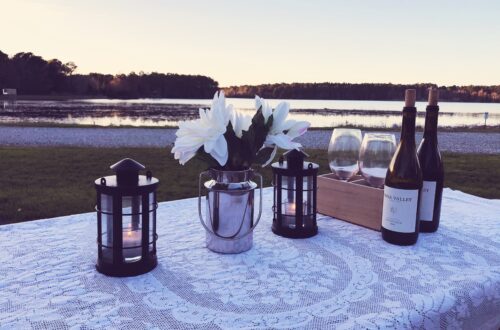
New to Homemaking? The Daily Routine


Ladies,
Commonly, new homemakers do not know what to do daily. Some may do too much exhausting themselves and their family trying to mimic the pace of the rat race thinking this is what makes them good at homemaking. Others may feel bored because they truly do not know how to fill their time, and others may actually be lazy but not even realize they are not doing enough.
Aside from obvious things like dishes after a meal, being home can feel like one empty desert of time. Some people overfill this time and some people underfill this time.
Don’t feel bad if you’re a new homemaker but you are not quite sure if you’re filling your time right. This is a job and any job takes training to learn how to do. A good place to start is understanding the blocks of time of morning, afternoon, and evening. This is a guideline to help you organize how you live your day.
Morning Block of Time
Morning structure has some very important tasks to be done. The first line of business should be to make the bed. Second is getting dressed for the day, yes, right away. Staying in pajamas or loungewear sets a tone for laziness. You have the privilege of working at home, but this means you need to get ready for work not for lounging. Give this job the dignity we are told it has in scripture. Get dressed in something nice, fix your hair and don your daily face. You will feel more awake and more beautiful for having done this. This is also a way to bless your husband and children by looking your best.
Right away we have the duty to make coffee and/or breakfast and feed pets and the family.
Depending on the season, you may have outdoor duties suited to the morning. Watering the garden, pulling weeds, or harvesting may be a few things you need to do in the morning outdoors. This is another good reason to be dressed and ready to do that.
Maybe you don’t have a garden or animals to care for, but you work out in the morning. This would be a morning task for you.
You may also set aside a time to read the Bible and pray for your day. I find that starting and ending my day this way is very important.
Many homemakers put in a load of laundry in the morning. This is a low energy task good for the morning. This way, at least one load has been started and finished early. This is a good morning habit as it keeps laundry from piling up.
The idea is to know that the morning involves making the bed, getting dressed, coffee and/or breakfast, and feeding animals, and then it’s the duties and activities you add to that, which you decide to keep to your morning block of time because you do not want them in your afternoon or evening block of time.
If morning is a high energy time for you, then use that to dive into duties. If concentration is highest in the morning, then lean into learning at this time. Maybe there’s something you have been needing to research or perhaps it’s Bible study. If you are low energy in the morning, spend time drinking coffee and tidying, which is a low energy task. Morning will be somewhat different for everyone, but certain duties are for the morning like making the bed and getting dressed.
Also consider the tasks best suited for your children’s particular morning energy levels. When I was little we had an extended “snuggle” period on the sofa in the morning while my mother drank her coffee. We needed the wake-up time and it was always a slow and comforting way to ease into our day.
Some children may wake up full steam ahead and having the toys, books or outdoors playsets to give them that outlet while you do your thing, is very important to put in place.
Working at home full time means we get to experience times that have been steamrolled by modern schedules. Morning time may hold new wonderful experiences that you never had before. It may mean a special place you like to sit and take in the view and enjoy a drink. You may read the Holy Bible and pray which you never did before. We can tend to something as simple as breakfast in a more detailed and loving way. We can improve our array of breakfast dishes. We can even make a double or triple batch to freeze or use the next day. We can cut and arrange flowers on the table for our breakfast experience. We can set out a beautiful bowl filled with fruit. These new found moments of attention and tending become time we are filling with work we were never told was work. We are cultivating a quality of life for the household for these moments we get to experience at home. You are not just having breakfast, you are creating the moment for breakfast. The homemaker works between the lines that society does not even realize exists anymore. But when you pay for a bed and breakfast retreat and everything is beautifully arranged and presented and offered….this is a business modeled after what the homemaker does for her family everyday. What they do is work and what she does is work. No lovely vacation experience is pulling itself together, it is designed that way.
Afternoon Block of Time
Afternoons will be different for everyone. If you are high energy in the morning, afternoon may be a restful time. If you were low energy in the morning, you may have energy in the afternoons. Littles will need afternoon naps. Then your afternoon structure would base around this free time you will have while they sleep. Daily cleaning, decluttering, organization, decorating, shopping, gardening, the list goes on of duties that should fill your afternoons. It is your job to look around and observe what needs to be improved and then to work on it.
Make one goal for each afternoon. It could be wiping all of the baseboards, mopping a floor, baking something, etc. Every afternoon offers time to complete at least one important household job.
Evening Block of Time
One of the most prominent daily goals of the homemaker is to orchestrate the evening. This is the time of day we welcome back our husband, even if he works at home. We have this specific time at the end of the day that our efforts can be felt and experienced richly. Evenings are for ambiance: softer lighting, scent of dinner, gathering around a table with flickering candles, soft music, drinks. You create this time and invite your family to the culture you want in your house. No TV and no phones during this time means rest from the outside world. Praying together and thanking God for the food is a part of the day that is important to do.
Just anticipating mealtimes will take up a lot of your time and energy. The new homemaker is still learning how to cook, trying out different recipes, and even food prepping in advance. Breakfast, lunch, and dinner will take up a significant amount of her time and energy especially until she gets better at it.
Use Your Time Wisely
The new homemaker needs to learn the morning activities of making the bed, getting dressed for the day, breakfast, outdoor work, laundry, or reading and praying. She needs to do her afternoon duties of daily essential cleaning and projects that need to be done. She needs to prepare the meals, create evening comfort and atmosphere and of course clean up after each meal. If you are attending to these activities, your time will be rather full. Aim for productive not rushed. As much as you work, you should rest, as much as you rest, you should work.
Homes need happy and peaceful women working in them. Being home is not an excuse to be lazy and being home is not about perfectionism that runs your ragged either. Enjoy your work at home and focus on being a blessing to your husband.
She looks well to the ways of her household
Proverbs 31:27
and does not eat the bread of idleness.





